PEAH is pleased to interview Dr. Sumedha Kushwaha and Dr. Dikha De, as the Founder and, respectively, the Head - Strategy and Operations, of India based not for profit ATTAC - Aim to Terminate Tobacco and Cancer - Society.
Dr Sumedha also serves as Head - Public Health, UE LifeSciences India Pvt. Ltd
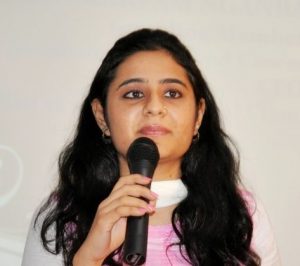
Dr. Sumedha Kushwaha Founder
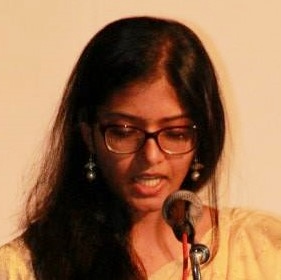
Dr. Dikha De Head – Strategy and Operation
ATTAC – Aim to Terminate Tobacco and Cancer – Society
What will save the most lives in the next 50 years is the daily service of people—people like you, imaginatively deployed to prevent human suffering. Volunteer health workers who travel across muddy roads to deliver health care to their communities. Nurses and doctors effectively delivering the right level of care, not the type of care that pays them the most money. The volunteer on the end of the phone, talking to someone who feels desperate. It will be human kindness, brilliantly channelled, that will continue to improve the health of millions over the next 50 years.
Rebecca Hope, Director of Programs and Co-Founder, YLabs
Interview
Dr. Sumedha, when and why did you start ATTAC?
It all started with a young 13-year old boy unaware of a pre-cancerous lesion in his oral cavity. Asked about his habit, he told us that he has been chewing tobacco in the form of Gutka sold in loose flashy packet easily available just outside his school gates in the nearby village. After he was informed about the lesion and its consequences, he replied
“I knew it was a bad thing but I didn’t know it would take away my life.”
This was it. As if a switch clicked inside me, fuelled by the apathy, I started on my social work journey and volunteered for more than 6 organizations learning about the ways of social work and altruism.
And in mid-August 2014 I as a 2nd year postgraduate student in Public Health Dentistry with my college batchmates opened a not for profit society called ATTAC – Aim To Terminate Tobacco And Cancer in 2014
What have been your major accomplishments?
Since 2014, ATTAC’s team ably helped by 100+ dedicated volunteers over the globe, has made more than 30,000 patients aware of such an unregulated, low priced, conveniently attainable cancer-causing substance. Apart from providing 11,000+ patients with a basic health check-up we have screened 7,000+ patients for oral cancer and the females with breast cancer screening too.
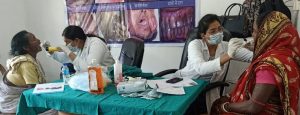
Those with positive habit history of tobacco usage are provided short one-on-one counselling on methods to quit, steps to quit and remain tobacco-free. Those with pre-cancerous lesions are counselled with emphasis on cessation and referred for further tests.
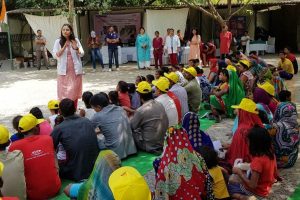
We’ve collaborated with similar not-for-profits to cover wider areas and provided training sessions for law enforcement officers, primary health-care workers, educational institutions and the Uttar Pradesh State Tobacco Control Cell.
We have also opened a facility for low cost diagnostic tests and tied up with various health care facilities for subsidized treatment along with running 3 cessation centres with no fees.
Our focus is majorly prevention and early diagnosis of diseases because we understand that if diseases are detected at their initial stages, the per capita expenditure is reduced grossly. Therefore, unburdening the Indian health care system.
What are the challenges you faced?
Tobacco use in India has deep cultural and historical roots; people take a puff of Hookah to get relief from stomach problems or they might fill tobacco in their teeth cavities to get pain relief. Along with this attractive packaging, little information on contents, various and newer methods of intake, advertisements and media portrayal have made it harder to break through. But they don’t realize that even a one-time contact with this poison is addictive enough to create a vicious cycle.
Although pan chewing and associated tobacco use began among the nobility, it soon spread to the common folk, and its importance as an obligatory social custom was established at all levels of society. By 1617, Smokeless tobacco use had become so popular among all classes that Jahangir, who came to the throne after Akbar, issued a decree identifying tobacco’s potential harms and forbidding its use.
Smokeless Tobacco and Public Health in India, MoHFW, Govt. Of India
To change the mindset and break some centuries-old myths, ATTAC has travelled to several rural, semi-urban and urban areas to create awareness, prevent, screen, provisionally diagnose and provide referral for treatment. These little steps to create a tobacco and cancer free society matter a great deal when a patient understands and relates to our mission, through either the public health talks or the individualised screening sessions. But sometimes one session is not enough. Its human nature to follow the path of least resistance and resisting change is easy because people tend to focus on what they have to give up. We make them realize what all they could gain, but bringing along change is a gradual, time-consuming and laborious process. Many patients are lost in follow ups and further assistance cannot be provided due to logistics or finances.
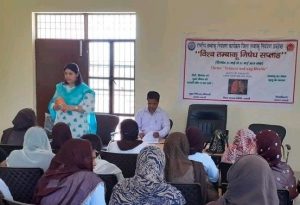
Since 2014, we’ve only been able to open up three cessation centres. Our major logistical limitation is acquiring adequate manpower and budgeting to expand our reach pan India and open up at least a 100 more tobacco cessation centres by next year. But that can only happen if we collaborate with local doctors/dentists and similar not-for-profits.
How do you plan to solve them?
Like I said, to reach more areas, we need to lessen the distance between interested public and specialists who can provide help and for that to be feasible, technology might be an enabler.
Nowadays technology is what brings us closer, be it accessing healthcare information, finding a suitable doctor, getting online consultations to even finding online support groups.
Tobacco cessation counselling is a metaphorical handheld guidance to direct the patient into changing their toxic habit to a healthy one. It’s not imposition of your values or writing prescriptions but a soft skill to help the patient detoxify years of physiological and psychological effects of nicotine, a combined persistent effort tailored to their dependence and usage to achieve a quit phase.
We at ATTAC, along with a multidisciplinary advisory board from both healthcare and technological divisions, aim to innovate a novel mHealth idea to help the healthcare professionals provide a standardised, evidence-based, session-wise therapy easily delivered in a healthcare setup. This will not only help to reduce the burden on the overall healthcare system but also in treating non communicable disease load of the society by simply increasing the information flow from practitioner to client i.e. making him aware.
We aim to objectify the entire cessation protocol but the same time acknowledge the fact that quitting is a personalized journey. The basics of counselling coupled with the knowledge of the practitioner in a user-friendly tool with access to newer material regularly is what we envision. Currently in its development phase, we are taking inputs on user-interface designing and content by various leaders in their specialities.
Dr. Dikha, do you believe technology can solve the problems of the developing world?
We have many visionaries of different sectors working relentlessly to solve public health problems, especially in war zones of Palestine and Iraq, and technology is the supreme carrier. If not solve them completely, technology can definitely help aid us in bridging the doctor-patient gap.
“To improve health and reduce health inequalities, rigorous evaluation of eHealth is necessary to generate evidence and promote the appropriate integration and use of technologies.” WHO
Yes, there are issues of data encryption and multiple bug fixes, but sustainable change takes time to grow roots and while technology might be fast, but it is slow to achieve a steady level and gain trust with its users. Apart from using technology as an adjunct, our main focus will remain on soft skills focus because the we might have robots in the future, but the world will still need people to pick up the phone and talk on the Quit line.
Dr. Dikha, what’s the plan for the future?
ATTAC’s goal is to increase the number of people we can reach out to, be it – wider area of reach by arranging health camps and public health talks or setting up of Tobacco Cessation Centres in each district easily accessible by the patient.
Our first and foremost plan is to expand our network. Rope in healthcare leaders, advisors and similar minded people to tackle the problem in a multi-disciplinary fashion and launch our mHealth cessation app for validation tests.
We will also be working closely with the Uttar Pradesh State Government on ensuring awareness in the younger age groups with their school programmes and helping the ASHA (Accredited Social Health Activists) and ANM’s (Auxiliary Nurse Midwife) get trained in tobacco cessation counselling, since they are India’s doorstep health workers.
Thank you Dr. Sumedha and Dr. Dikha for your enlightening answers and highly commendable engagement







